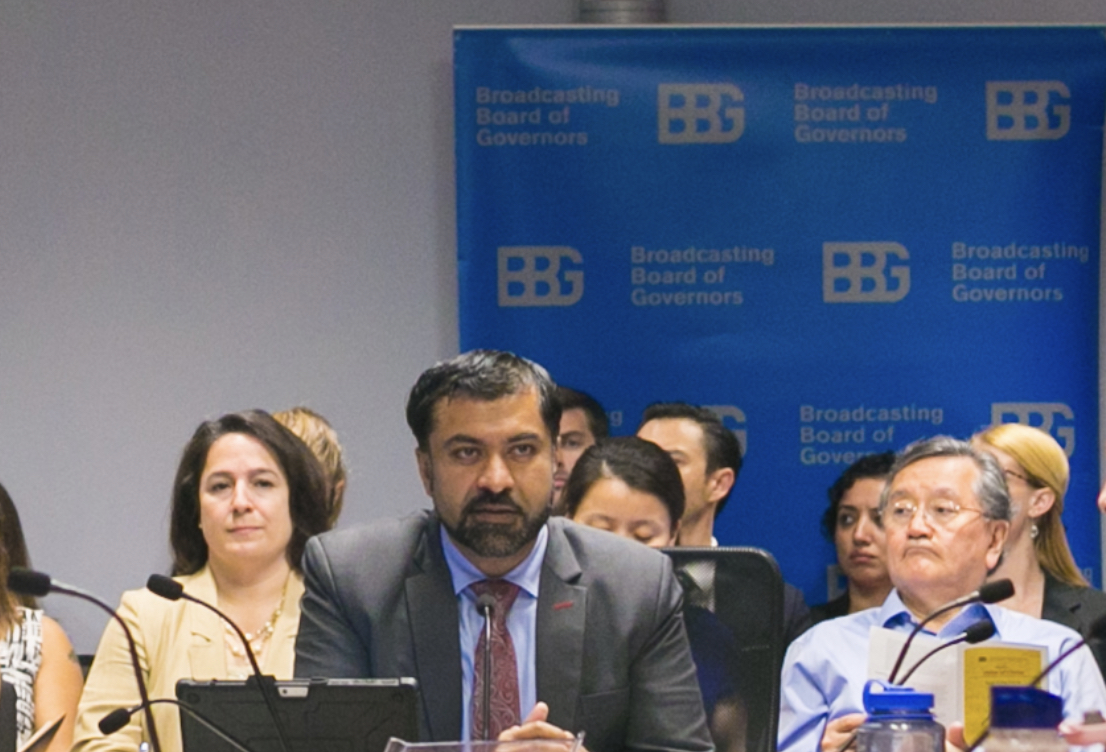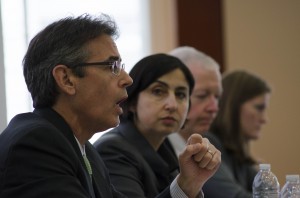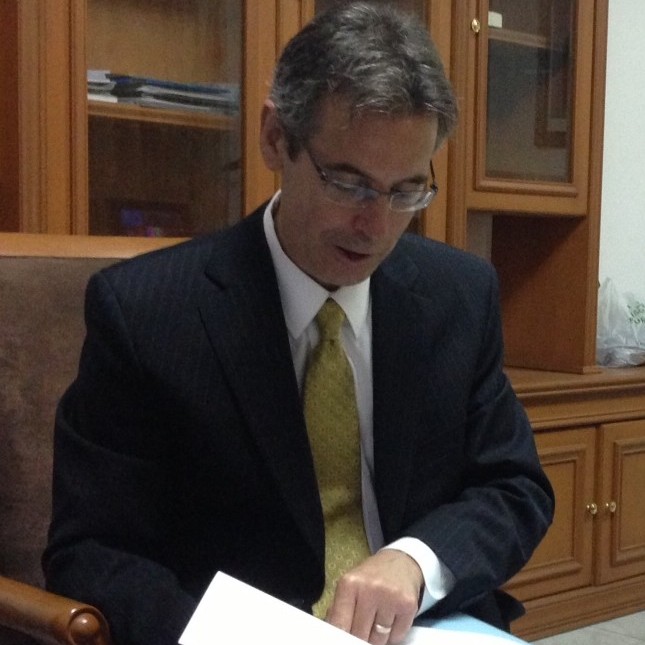USAGM Watch Commentary
Bruce Sherman, one of the members of the advisory transition team selected by President-elect Joe Biden for the U.S. Agency for Global Media (USAGM), commissioned and promoted in 2014 a public opinion poll in Russian-occupied Crimea which was criticized for helping disinformation by Russian officials and the Kremlin’s state media propagandists. As Director of the Office of Strategy and Development in the Broadcasting Board of Governors (BBG) in 2014, Sherman claimed that the poll, which he had conducted in Crimea without seeking permission from the Ukrainian government, showed overwhelming support among the Crimeans for the Russian annexation of the Ukrainian territory. Sherman promoted the poll’s results in various public presentations.
About three-fourths of Crimeans (73.9%) say Crimea’s becoming part of Russia will make life better for themselves and their families, just 5.5% disagree.
Bruce Sherman, Director, Office of Strategy and Development, Broadcasting Board of Governors (BBG) which from 2018 is u.S. Agency for Global Media (USAGM), “Contemporary Media Use in Ukraine,” June 03, 2014.
Crimeans are overwhelmingly likely to view Russia’s role in the crisis as positive (71.3%) rather than negative (8.8%).
BRUCE SHERMAN, DIRECTOR, OFFICE OF STRATEGY AND DEVELOPMENT, BROADCASTING BOARD OF GOVERNORS (BBG) WHICH FROM 2018 IS U.S. AGENCY FOR GLOBAL MEDIA (USAGM), “CONTEMPORARY MEDIA USE IN UKRAINE,” JUNE 03, 2014.
But the results of the 2014 poll in Crimea and Bruce Sherman’s claims were questioned later by American, Ukrainian and independent Russian experts.
Some American audience research analysts were “shocked” that the Broadcasting Board of Governors would commission such an unreliable poll and were concerned that the presentation of its questionable results by Mr. Sherman shortly after the illegal Russian occupation of Crimea would help Vladimir Putin advance his propaganda and disinformation.
“U.S. government officials commissioning audience research in the Russian-occupied territory of Ukraine, where people’s lives are in danger, and expecting to get truthful answers, was, frankly, irresponsible and wrong, and promoting these results as valid was even more irresponsible,” former Voice of America acting director Ted Lipien observed in 2014. Lipien, a co-founder and volunteer at BBG – USAGM Watch, was earlier a BBG regional marketing director for countries in the former Soviet Union, including Ukraine.
“Doing research is important, but we need to do it with quality,” said Dr. Nino Japaridze, at the time Senior Fellow at the Foreign Policy Research Institute, Project on Democratic Transitions. Dr. Japaridze, who previously had done audience research for Radio Free Europe/Radio Liberty (RFE/RL) and for BBG, noted in 2014 that “adults in Crimea with anti-Russian predispositions, out of fear, may have selected responses that would have been more likely to please pro-Russia activists in order to avoid intimidation or worse.”
“If we sense that interviews are only giving us data for the sake of having the data rather that giving us responses that people really believe in (something one can test during pre-test), we should not implement such fieldwork,” Dr. Japaridze said.
Apparently faulty poll results were reinforced further and promoted in a controversial BBG press release and a Voice of America news report picked up by U.S. and international media.
Both Bruce Sherman as BBG Director of the Office of Strategy and Development in 2014 and the Voice of America reported the Crimea poll results as perfectly valid, while experts in Ukraine, Russia, and in the U.S., described them as questionable or outright faulty. Neither Sherman nor VOA editors and reporters raised any questions that results of a poll in Crimea conducted under the Russian occupation might be seriously skewed by intimidation and fear, and would be therefore unreliable.
Attracting more recent controversy is also the head of Biden’s transition team for the U.S. Agency for Global Media, former Under Secretary of State for Public Diplomacy and Public Affairs Richard Stengel. He had relied on advice about public attitudes in Muslim countries on his highly-praised former assistant Haroon Ullah. Hired later by former BBG CEO John Lansing as his chief strategic advisor, Ullah worked at USAGM until he was caught stealing taxpayers’ money, fired and convicted in a federal court.
Stengel is also still being criticized for his 2019 Washington Post op-ed advocating restrictions on free speech in the United States. Stengel was also identified as pushing at closed BBG Board meetings Obama White House talking points on relations with the communist regime in Cuba and questioning the mission of Radio and TV Marti in the Office of Cuba Broadcasting (OCB). These taxpayer-funded media entities are overseen by the U.S. Agency for Global Media.






